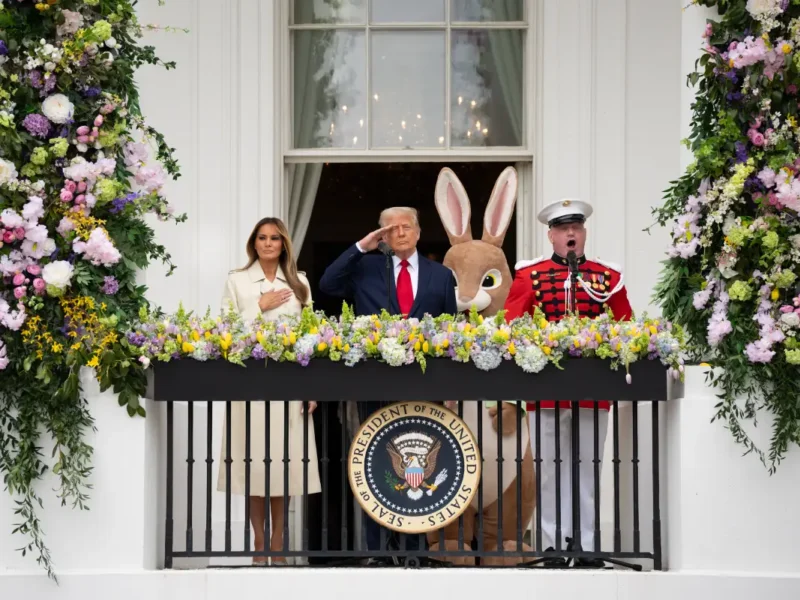
Trump Escalates Political Interference: Threatens Tax Status As Harvard Fights Back
India-West News Desk
WASHINGTON, DC – On April 15, former President Donald Trump publicly questioned whether Harvard should retain its nonprofit status, accusing the university of promoting “ideological and terrorist-inspired” views and suggesting it should be taxed as a political entity. The threat followed Harvard’s refusal to comply with a set of directives from the Department of Education that would dramatically reshape how the university operates—from hiring and admissions to curriculum and governance.
The dispute represents a sharp escalation in the administration’s campaign to reshape American higher education through federal leverage. Within hours of Harvard’s rejection, the administration on April 14 froze $2.3 billion in federal contracts and grants, following an earlier review of $9 billion in federal funding. Officials have linked this effort to a broader crackdown on what they describe as rising campus antisemitism, particularly during pro-Palestinian protests over the last 18 months.
An April 11 letter from the Department of Education demanded that the university reduce the influence of faculty and students “more committed to activism than scholarship,” establish external audits for “viewpoint diversity,” and eliminate race-based considerations in admissions and hiring. It also called for enhanced screening of international students to exclude those deemed “hostile to American values,” and directed Harvard to report violators to immigration authorities.
Harvard President Alan Garber forcefully pushed back in a public letter, warning that the administration’s demands would grant the federal government unprecedented control over a private academic institution. “No government—regardless of which party is in power—should dictate what private universities can teach, whom they can admit and hire, and which areas of study and inquiry they can pursue,” he wrote.
Garber also stated that the required ideological audits and political litmus tests violate First Amendment protections and undermine the university’s mission. “These ends will not be achieved by assertions of power, unmoored from the law, to control teaching and learning at Harvard and to dictate how we operate,” he wrote.
Harvard professors have filed suit to halt the funding review, citing violations of academic freedom and due process. Columbia University, also under scrutiny, is reportedly facing a proposed consent decree that would legally compel it to adopt federal policies on campus speech and antisemitism. The government has already suspended $400 million in funding to Columbia, prompting lawsuits from faculty there as well.
Critics warn that the administration’s tactics—linking billions in funding to ideological compliance—amount to a political intervention into the intellectual life of universities. While institutions like Harvard have affirmed their commitment to combating antisemitism, they argue that such efforts must not come at the cost of their autonomy.
To mitigate the financial impact of the funding freeze, Harvard is reportedly seeking to borrow $750 million from private markets.




